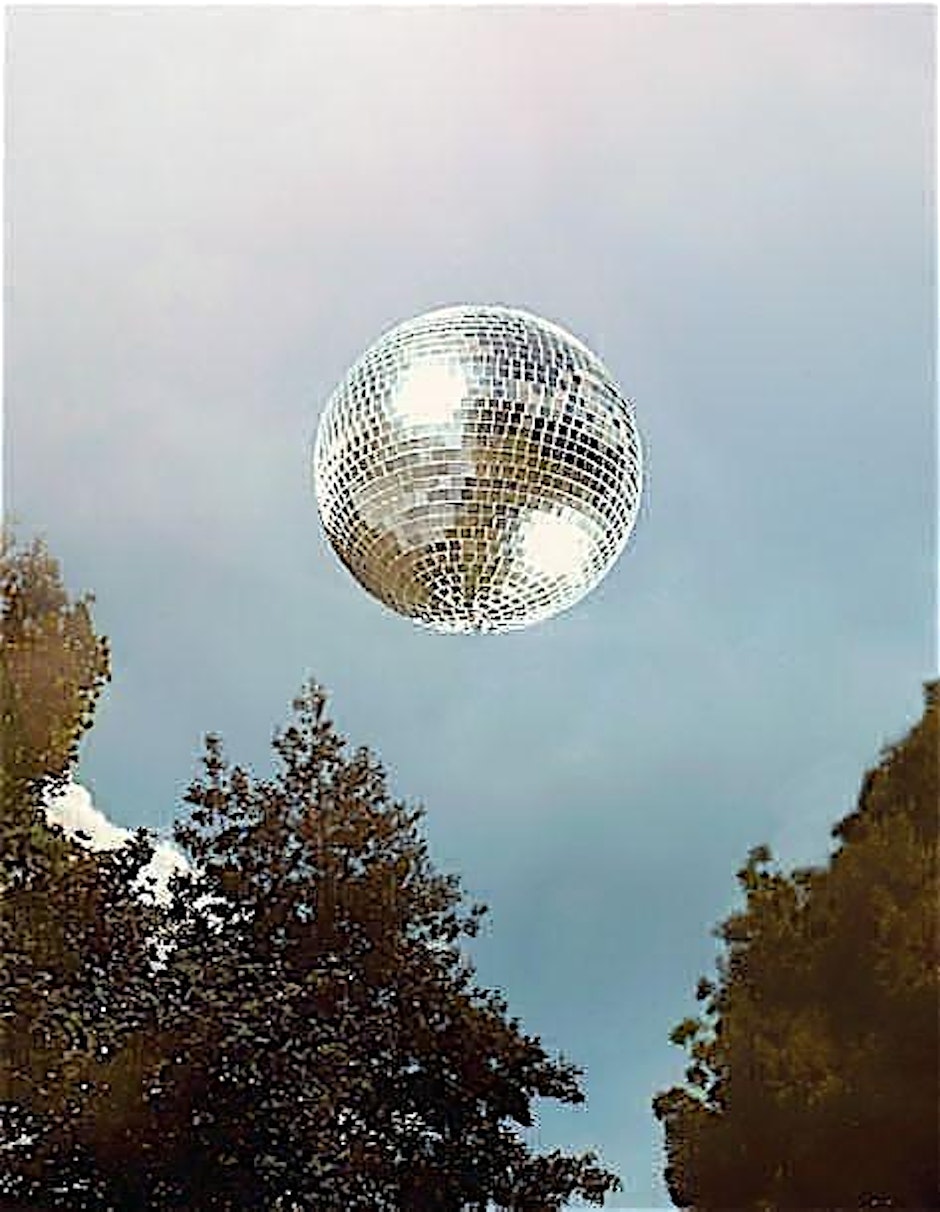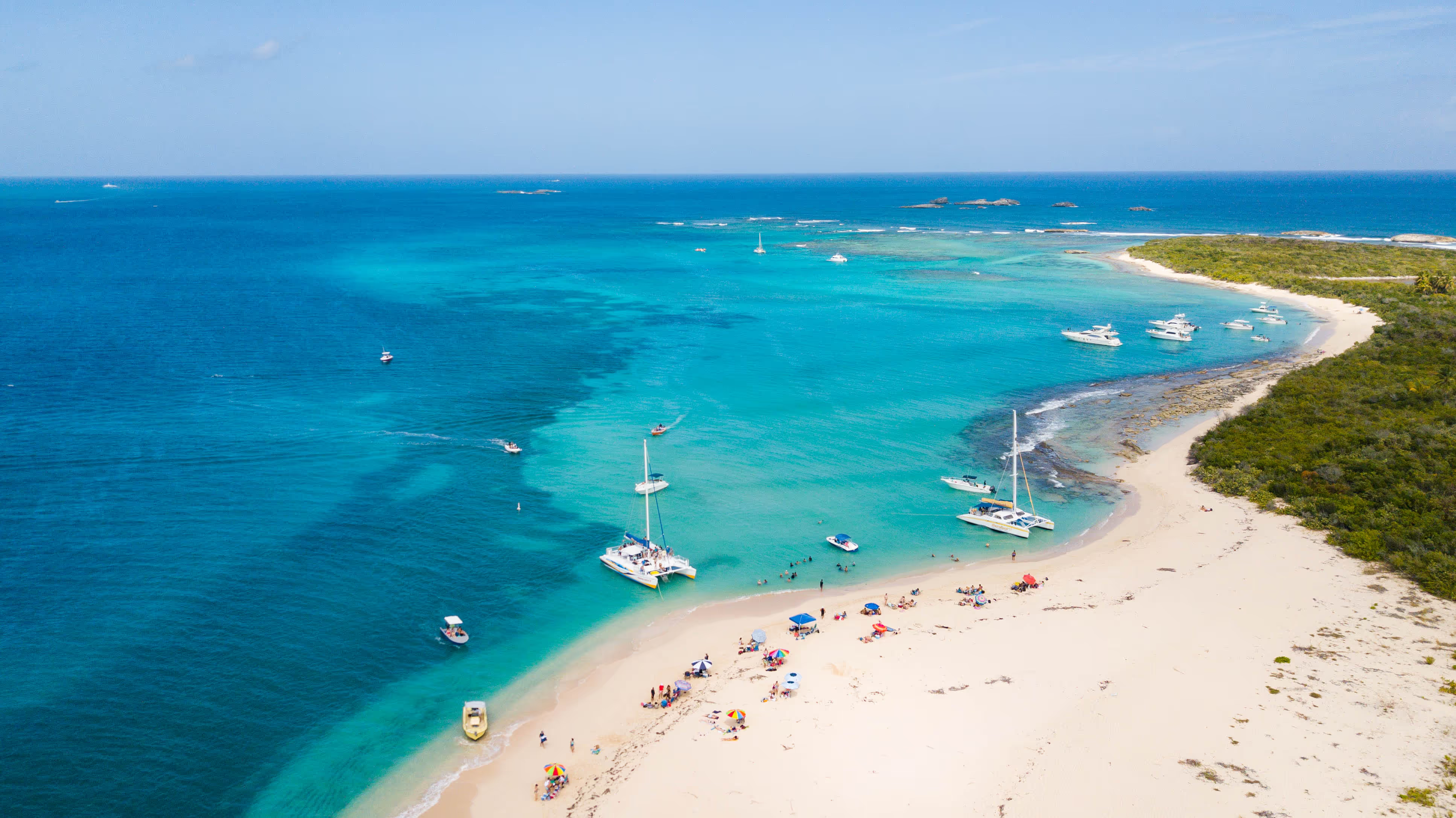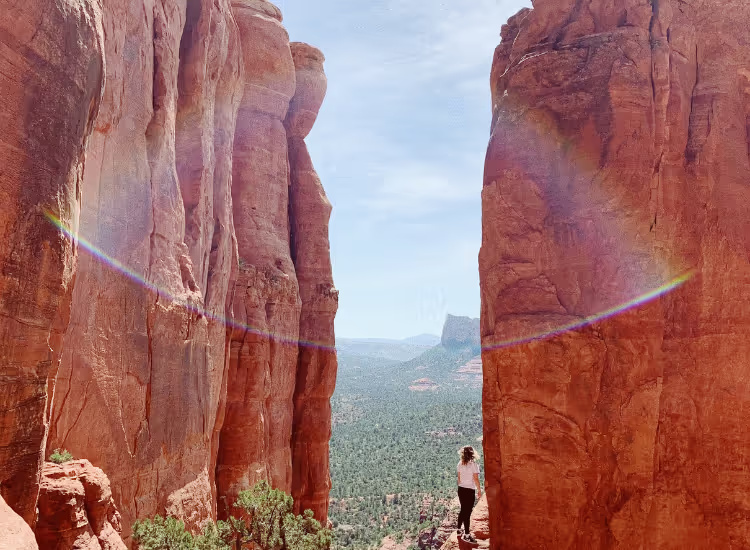How to Stay Present While Exploring
Explore mindful travel experiences and transform your journeys into self-discovery through mindfulness practices.

Traveling provokes a sense of curiosity and opens up new perspectives, but it's not just about sightseeing; it's also an opportunity to nurture your mental health.
The key lies in mindful traveling. Through the practice of mindfulness - a form of meditation where you recognize and savor every single moment - your travel experiences can transform from mere excursions to holistic journeys of self-discovery.
Whether it's taking mindful walks, embracing local culture, or simply enjoying the serenity of your surroundings, mindful traveling allows you to experience your trips with unprecedented depth and vividness.
In this guide, we're going to explore practical ways to immerse yourself fully into your travel experiences and how this enhances your mental wellbeing, all through the fascinating lens of mindfulness.
Practical Tips for Mindful Traveling
Embarking on a journey with a mindful approach can significantly enhance your travel experience.
Avoid cramming too many activities in a short span, and instead, prioritize quality over quantity.
Here are 5 tips to help you prepare for an unforgettable trip:
- Pack Mindfully: Take time to consider what you truly need for your journey. Packing light reduces stress and allows for easier movement. Additionally, appreciating each item you pack - its purpose and value - can begin your mindfulness journey even before you leave your doorstep.
- Savor Your Experiences: Instead of rushing to see every tourist spot, choose a few key places and spend quality time there. Savor the sights, smells, sounds, paying attention to your experience in the present moment.
- Limit Digital Distractions: While technology can be a useful tool for navigation and information, try to limit time spent on devices to enhance your engagement with the environment and the moment.
- Practice Conscious Breathing: From the bustle of airports to long flight hours, travel can be stressful. Conscious deep breathing exercises can help calm your mind, reduce stress, and bring you back to the present.
- Keep a Gratitude Journal: Jot down things you are grateful for each day, irrespective of how small they may seem. This practice promotes appreciation of your experiences and encourages a mindful, positive mindset.
The Art of Staying Present in Unfamiliar Surroundings
Traveling with a pre-set itinerary has its advantages. For instance, it eliminates the anxiety related to uncertainties or unforeseeable events. However, maintaining a rigid schedule during your travel experience might prove to be restrictive and might cut you off from spontaneous and exciting experiences. Embracing spontaneity en route has the potential to make your journey truly memorable and fulfilling.
The element of surprise brings in a sense of curiosity and wonder, amplifying your overall awareness. You may find yourself paying extra attention to mundane details, reveling in the beauty of the location, or simply soaking in the experience at large. This level of immersion and focus is where mindfulness thrives.
Mindfully wandering around the city or nature trails without a fixed plan can help unplug your mind. It allows you the freedom to head in the direction your heart desires, opening up opportunities for unplanned interactions and heart-warming discoveries.
“Taking the road less traveled has often led to the most unique and fulfilling experiences.”
Engaging with locals, trying out unknown cuisines, getting lost in the maze of a new city, or simply sitting by the beach observing the waves - each has the potential of becoming a life-altering experience when encountered without expectations.
When we drop our expectation-driven approach and embrace spontaneity, we're not merely traveling, we're witnessing life unfold in its natural course. This can often lead to experiences filled with authentic interactions, unforgettable views, surprising lessons, and above all, inner peace that comes from living in the present.
So, for your next adventure, consider leaving some room in your travel schedule for the unexpected. This may be the essential key to incorporate more mindfulness into your trip, encourage a broader perspective, and elevate your overall mental wellbeing.
Cultivating Mindfulness: Travel as a Meditation
One of the most potent and beautiful analogies to understand how travel can be a form of meditation is to imagine your journey as a flowing river. Just like in mindfulness meditation, where you are asked to focus on your breath, the continuous cycle of inhaling and exhaling, in mindful traveling, you are constantly moving, observing, and experiencing new things.
So how can you transform your travels into a meditative journey? Let us explore some steps.
Firstly, embark on your journey with no expectations. Letting go of preconceived notions and anticipations allows you to fully immerse in the present moment, taking in each unique experience as it arises.
Next, practice being actively observant. Really notice your surroundings - the sounds, smells, colors, and textures. Stay in tune with your body sensations as well. How do the new flavors tantalize your taste buds? How does a dip in a different sea make your skin feel? This active engagement with your environment can enhance your travel experience and deepen your mindfulness practice.
It's also crucial to maintain an open mind throughout the trip. Every place and every person you meet holds a lesson to learn. View things from a fresh perspective, allowing for diversity in thought and compassion towards the differences encountered. Not only does this enrich your travel experiences but also fosters inner growth and self-understanding.
Another practice to incorporate is mindfulness meditation. Carve out time each day, perhaps in the morning or at the end of the day, to meditate. This could be as simple as ten minutes of focused breathing, a walking meditation, or a more structured guided meditation. It refocuses your mind, calms your senses, and cultivates a continuous state of awareness throughout your trip.
Lastly, hold onto gratitude. Remember to appreciate your unique experience and the opportunity travel gives to view life from a different lens. This can be done by simply voicing thanks, writing in a gratitude journal, or capturing moments of joy through pictures. Remember, the goal isn't to accumulate sights, but insights.
The Science behind Mindfulness and Improved Travel Experiences
When we talk about travel, mindfulness isn't usually the first concept that comes to mind. However, recent scientific evidence supports the idea that practicing mindfulness can significantly enhance our travel experiences. Mindfulness, according to a study published in Behavioral Sciences, is the ability to maintain a moment-by-moment awareness of one's thoughts, sensations, feelings, and surrounding environment through a gentle, nurturing lens. This can help increase overall satisfaction and enjoyment during travel.
A 2013 study in the journal Psychological Science found that participants who engaged in mindfulness practices were better able to maintain positive feelings and manage stress compared to those who did not. This has substantial implications for travel, as it suggests that mindfulness can significantly enhance our ability to handle the potential stresses often associated with unfamiliar surroundings.
Moreover, a 2012 review of randomised controlled trials found that mindfulness meditation helps reduce anxiety and improve mood states. In the context of travel, these factors can play a crucial role in enabling a more relaxed, enjoyable journey. Being able to manage anxiety and sustain a good mood can not only increase the overall satisfaction from a trip, but also allow for a deeper engagement with new experiences and cultures.
Lastly, practicing mindfulness fosters a sense of openness and curiosity which can be particularly beneficial for travelers. A study published in Consciousness and Cognition found that individuals with higher trait mindfulness tend to exhibit greater curiosity, which is an essential attribute for travelers open to exploring new and unique experiences.
Combine all these pieces of evidence, and the science becomes clear: incorporating mindfulness into your travels can greatly enhance your experiences, your ability to cope with stress, and your overall mental health.
Final Thoughts
Travel, as a seemingly endless sandbox of new encounters and adventures, undoubtedly provides an excellent platform to cultivate mindfulness. Rather than merely being a change of location, it becomes a dynamic and vibrant practice that fortifies your mental well-being and enhances your appreciation for life. However, mindful traveling, just like any other skill, requires regular practice and robust commitment.
Let's contemplate the key takeaways from this article to imbue your future travels with mindfulness:
- Stay present and fully engage: Whether it's a majestic sunset, the robust flavor of a local dish, or the resonating melody of a street musician, be fully in that moment. Absorb the sights, flavors, sounds, and feelings. Let them permeate your consciousness.
- Embrace the unfamiliar: Breathe into discomfort. When things don't go as planned or when confronted with totally alien situations, take a mindful deep breath and try to respond rather than reacting negatively. Remember, it's all part of the learning experience.
- Use travel as a meditation: View each moment as an opportunity to reconnect with yourself and the world around you in a meaningful and enriching manner.
- Grasp the science: Inculcate the psychological benefits of mindfulness into travel routine. Knowing how it enhances your travel experience can serve as a powerful motivation.
May your journey, no matter where you go or what you do, become a path to self-discovery, personal growth, and deep contentment. So, embark on your next travel adventure with mindfulness at heart. Embrace the unexpected, live in the moment, and let the journey transform you!
Remember, travel is not just about moving geographically, but also about traveling within oneself, adding rich textures to your personal narratives!




